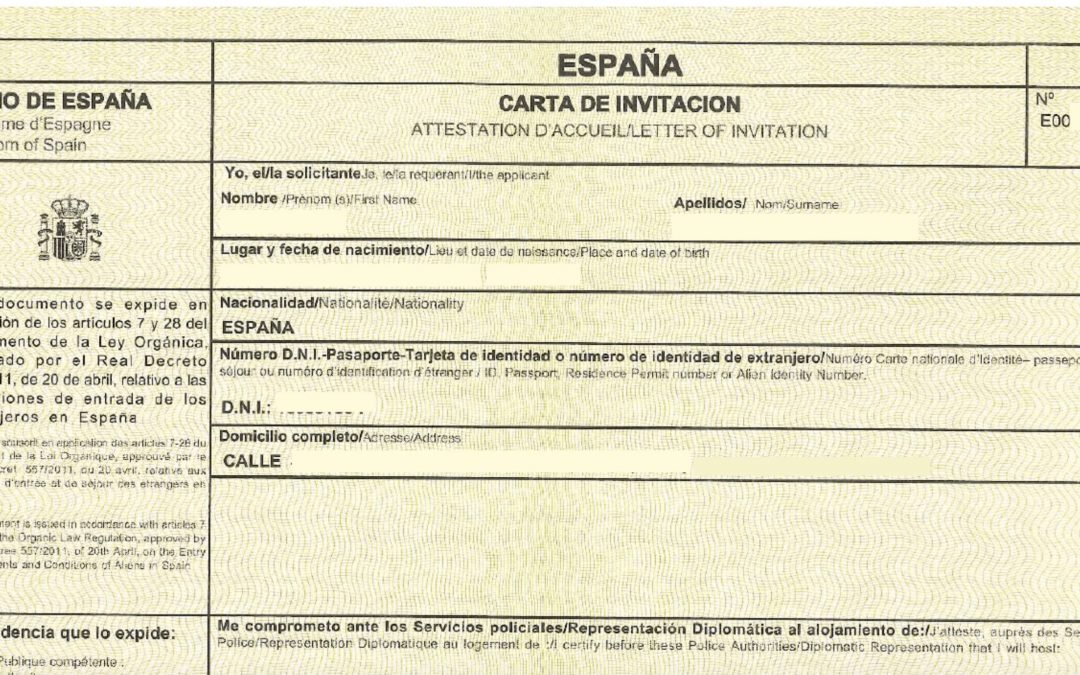Because they deny an invitation letter

Honduran consulates in the United States do valuable work representing and assisting Honduran citizens on U.S. soil.
One of the most common requests they receive is the letter of invitation for family and friends. However, on occasion, this request may be denied.
Below, we explore the most common reasons why a letter of invitation might be denied:
- Incomplete or Incorrect Documentation: One of the most frequent reasons for rejection is the submission of incomplete, illegible or incorrect documents. It is essential to follow the consulate’s guidelines and requirements to the letter and ensure that all documents are in order and legible.
- False Information: Providing false or misleading information, either intentionally or by mistake, may result in denial of the application. Consulates carry out a verification process and if inconsistencies are found, the application may be rejected.
- Security Reasons: If the applicant or guest has a criminal record or is involved in suspicious activities, the invitation letter may be denied for security reasons. It is essential to be transparent and honest about it.
- Lack of Strong Ties to Honduras: The consulate can assess whether the person wishing to visit the U.S. is a “non-citizen. has strong ties to Honduras that ensure their return, such as stable employment, property or a family. If they consider that there is a risk that the person will remain in the U.S. after the end of their visit, they may deny the request.
- History of Denied Applications: If a person has repeatedly applied for a visa or letter of invitation and has been denied on previous occasions, this may affect the consulate’s perception and result in another denial.
- Insufficient Financial Capacity: The financial capacity of the applicant or guest may be assessed to determine if they can afford to travel and stay in the U.S. If the consulate considers that the applicant does not have the necessary financial means, the application may be rejected.
In conclusion, obtain a letter of invitation from the Honduran consulate in the USA. is a process that requires accuracy, honesty and completeness.
It is essential to be well informed about the requirements and follow the guidelines to the letter to increase the chances of the application being approved. If you receive a refusal, it is advisable to seek advice to understand the reasons and, if possible, correct and reapply in the future.
How long does a letter of invitation last?
The duration of an invitation letter depends on the purpose and the country to which it is addressed. In general, a letter of invitation does not have an expiration period per se, but serves as a supporting document in a process, such as a visa application. However, there are factors to consider:
- Validity of Purpose: If the invitation letter is for a specific event, such as a wedding or conference, its validity would be tied to the dates of the event. After the event, the letter would no longer be relevant.
- Country Requirements: Some countries may have regulations on how long before the visa application the letter of invitation must have been issued. It is important to check the regulations of the country to which you plan to travel.
- Circumstantial Changes: If the circumstances described in the letter of invitation change (e.g., the host moves or changes jobs), the letter may need to be updated to reflect the current situation.
- Practical Recommendations: Although the letter itself does not expire, it is advisable that it is no more than six months old at the time it is submitted to the relevant authorities. A recent letter gives more confidence and shows that the intent and circumstances described are still valid.
How to reject a sample invitation letter?
Rejecting a sample invitation letter in a courteous and professional manner is essential to maintaining harmonious relationships. Here is a step by step guide on how to do it:
- Heading: Begin with the formal heading, which includes your address, the date and the address of the person or entity that sent the invitation letter.
- Greeting: Address the person or entity in a formal manner, for example: “Dear Mr. Perez” or “Dear Organizing Committee”.
- Acknowledgement: Before mentioning your decision to decline, thank them for the invitation. Example: “I sincerely appreciate the invitation extended to me to participate in…”
- Reason for Refusal: It is important to mention, briefly and concisely, the reason why you cannot accept the invitation. It is not necessary to go into personal details; sometimes a simple “Due to previously acquired commitments” is sufficient. However, being honest and clear is vital to avoid misunderstandings.
- Expression of Interest: Even if you are declining the current invitation, if you are interested in future opportunities or events, indicate so. For example: “Although I am unable to attend on this occasion, I would be very interested in participating in future events or collaborations”.
- Farewell: End the letter with a cordial farewell, such as “Sincerely” or “With all due respect,” followed by your signature and full name.
- Review: Before sending the letter, review it to ensure that your message is conveyed clearly and respectfully.
- Means of Sending: Depending on how you received the original invitation, you can send your response by the same means, either by email, postal mail or through a specific platform.
Always remember that by declining an invitation, you are declining the offer and not the person or entity that made the invitation. Maintaining a respectful and appreciative tone is essential to maintaining good relationships.






